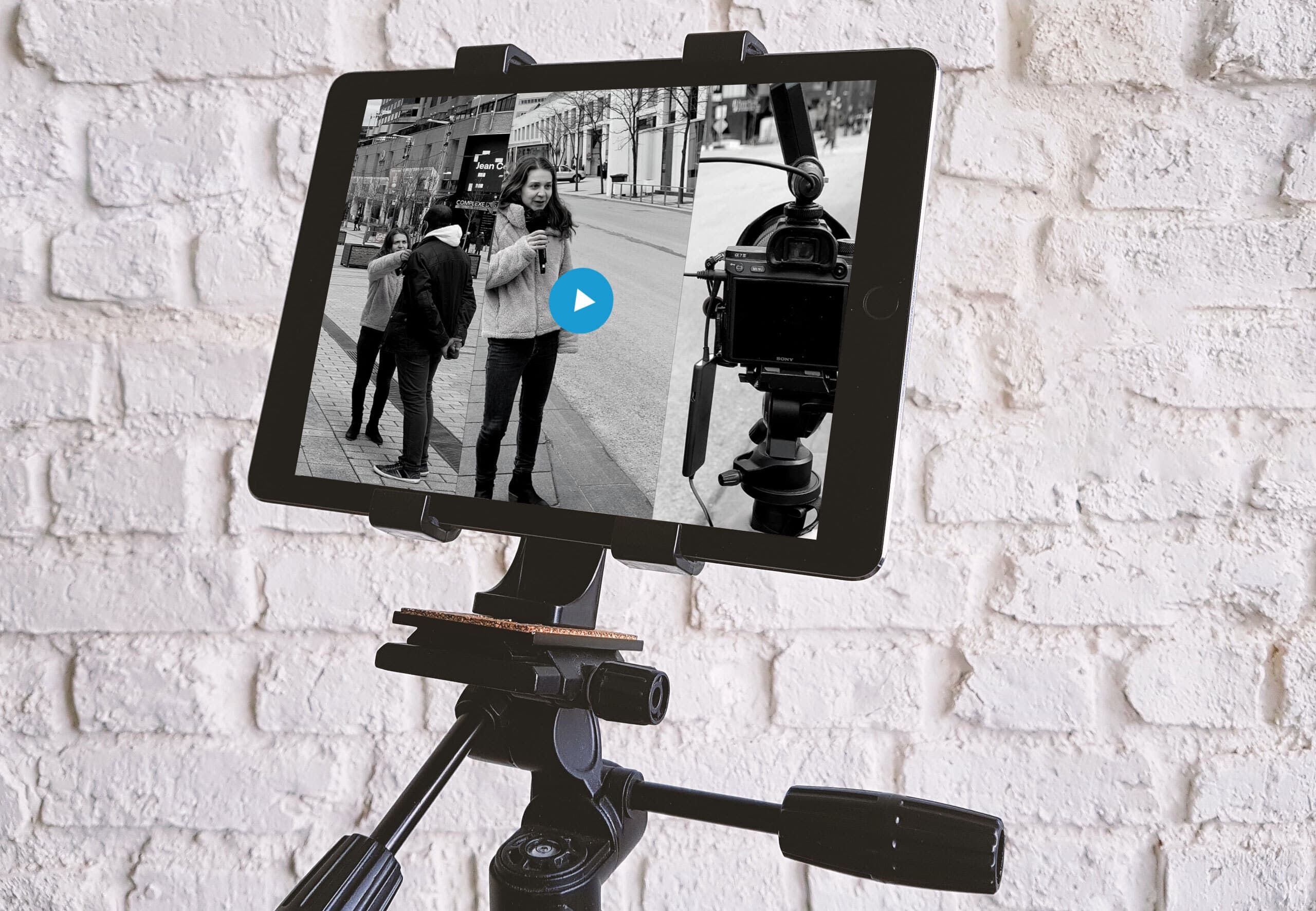
The mission of the Fonds de recherche du Québec (FRQ) is to support and promote excellence in research and in the training of the next generation of researchers in order to stimulate the development of knowledge and innovation.
Improving health care and social services requires responsible practices with respect to the common good that is health data (or medical records or medical data). Now, the concerns and expectations of the Quebec population regarding their medical information are real and must be heard.
The FRQ team, in partnership with Data Lama and PhDesign, wanted to conduct a vox-pop among citizens on the social acceptability of using personal health data for research purposes.
The objective was to present these unreleased findings at the opening of a colloquium during the 89th Acfas congress, in order to deepen the reflection on this societal project and to provide starting points for the questions submitted to the panellists of a citizens' round table.
We leveraged our combined expertise in the following areas:
A vox-pop is a public opinion survey that consists of questioning people on the street in order to obtain their spontaneous impression or opinion on a predetermined subject, in this case, the sharing of their health data with scientists.
It is really a social experiment. The approach to the participants is a key step. Testimonials that reflect a diversity of views must be collected.
To popularize the concept of health data to the public, we have chosen to use the term "health information". The clarity of the statement and the understanding of the questions are key factors for the success of a vox-pop.
The preparation of the shooting begins with the choice of a strategic location that allows for several possible angles of view for the camera, in the heart of a pedestrian area, in order to increase the chances of having participants with diverse profiles. For our vox-pop project, we chose the Place des Arts in downtown Montreal. About thirty people were approached and twelve agreed to participate and answer questions on camera.
The goal of the video editing process is to capture the attention and highlight the diversity of the participants' personal statements in the few minutes of final video.
We opted for head-on camera shots. Sound (music) and visual (graphic design) elements were added to enhance dynamism and promote the audience's attention.
The final step is to promote the video, first on two of the agency's social media channels and blog, then at the conference, and then on FRQ's social media. Regarding the agency's social media, Linkedin and Facebook, the publications posted between April 20 and May 10, 2022 generated more than 4000 impressions. The chosen method of promotion: 1) production of a 40-second teaser promoting the upcoming conference, 2) creation of simple visuals to accompany the publications, 3) identifying and sharing publications with key individuals and institutions.
The survey collected the opinions of Quebec citizens on the issue of sharing their medical information with scientists in the health field. This video will be used as a basis for discussion between scientists and citizens during the symposium organized by the FRQ.
The vast majority of interventions show that citizens are open to sharing their medical information, under certain conditions. In particular, it is important that the research community be transparent about its goals and intentions, that the use of data be safe, and that there be informed consent from patients.
From scripting to video promotion, this fifth case study presents some of our creative and consulting expertise and services. This type of video production can be used to launch a discussion within scientific conferences. It can also serve as a tool for dialogue between the world of scientific research, public decision-makers and the Quebec population, in order to move the debate forward and build a true social pact around health data. For more information, contact us.